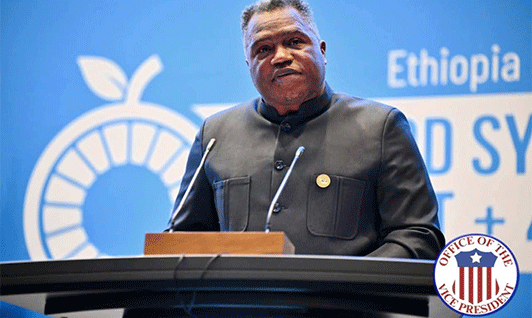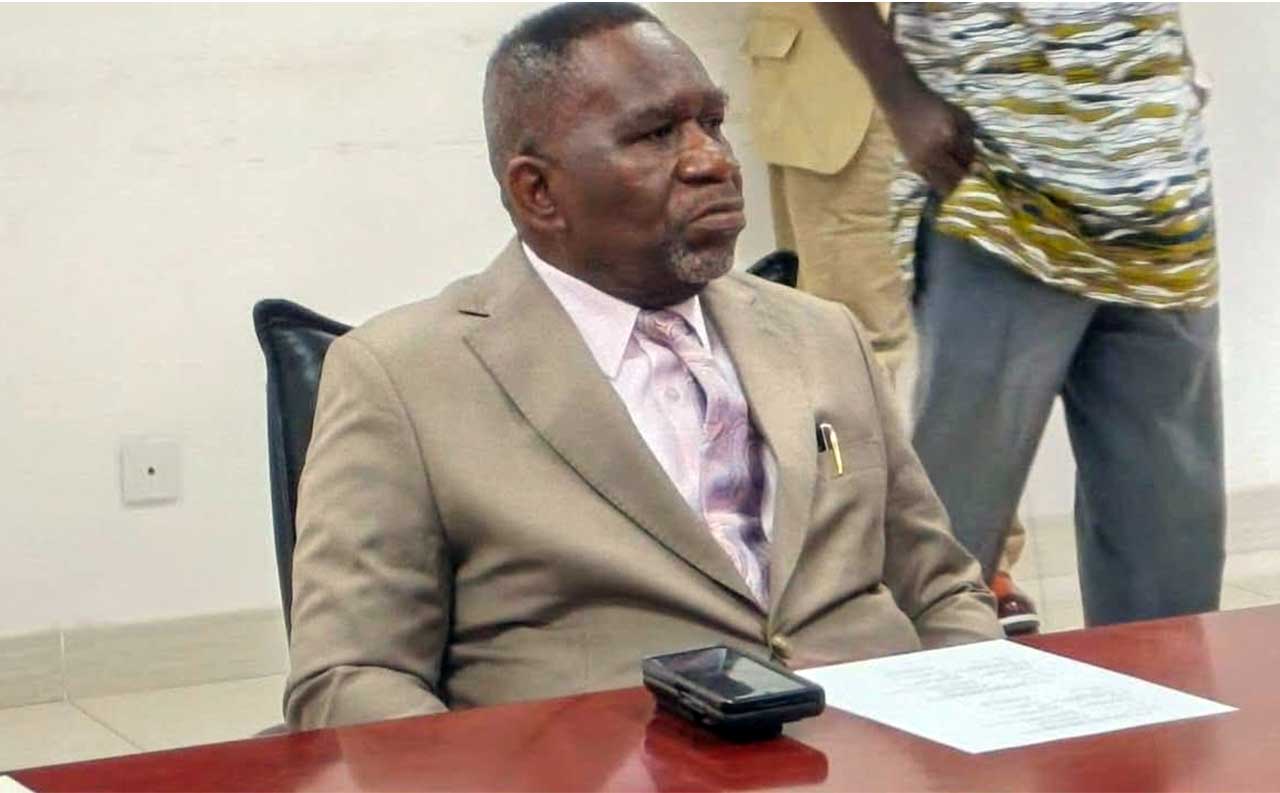Vice President, Jeremiah Kpan Koung has pledged Liberia’s support to the United Nations Food System Agenda. The United Nations Food Systems Agenda was formally advanced through the UN Food Systems Summit held on September 23, 2021, during the United Nations General Assembly in New York.
Also, the UNFSA was established to transform global food systems, address hunger and malnutrition, to align with the Sustainable Development Goals (SDGs), to respond to climate and environmental crises as well as make food systems more equitable. Additionally, the agenda aimed to transform the way the world produces, consumes, and thinks about food, ensuring that food systems are more inclusive, sustainable, resilient, and equitable.
Speaking Monday, July 28, 2025 at the UN Food System Summit in Ethiopia, Vice President Koon stated that Liberia remembers the UNFSS, not just for its declarations, but for its role in mobilizing transformative actions for food security. According to him, UNFSS should invest not only in agricultural yields, but also in sustainability, human dignity, resilience, and lasting transformation for future generations.
During the ceremony, the Vice President underscored the critical link between food security and peace building, indicating its relevance for conflict-affected and fragile states. He told the audience at the summit that Liberia recognizes sustainable transformation and the need for robust regional cooperation.
He reaffirms Liberia’s unwavering commitment to the African Union’s Comprehensive Africa Agriculture Development Programme (CAADP) and its strategic alignment with the Sustainable Development Goals. “For Liberia, these systems transcend mere agricultural processes, they are engines of peace, platforms for equity, and pillars of national resilience,” he added.
Veep Koung explained that through the National Pathway for Food Systems Transformation, Liberia has prioritized three key areas, which include nutrition-sensitive agriculture to combat stunting and malnutrition affecting most vulnerable populations, climate-smart agricultural practices developed in partnership with local farmers and cooperatives and inclusive governance frameworks that meaningfully engage youth, women, and traditionally marginalized communities.



